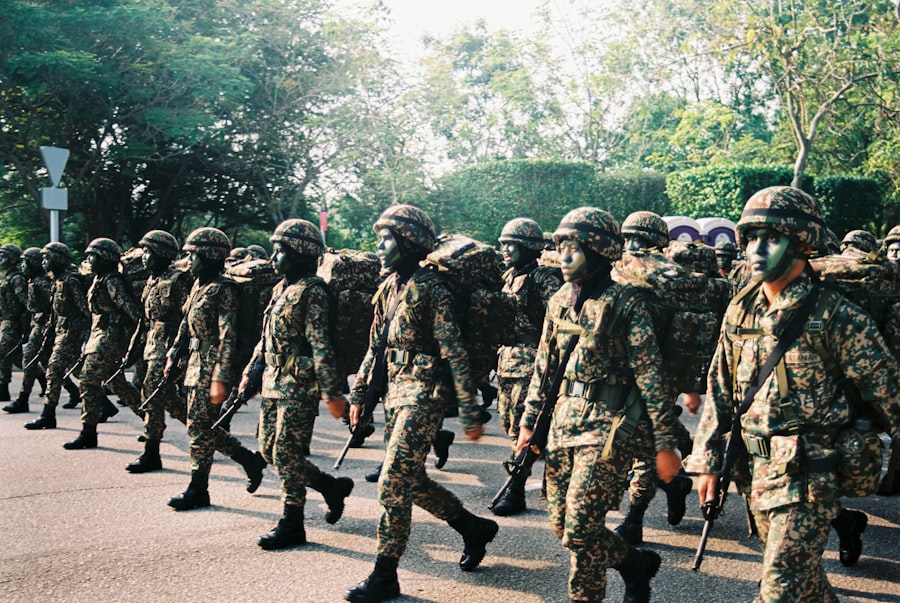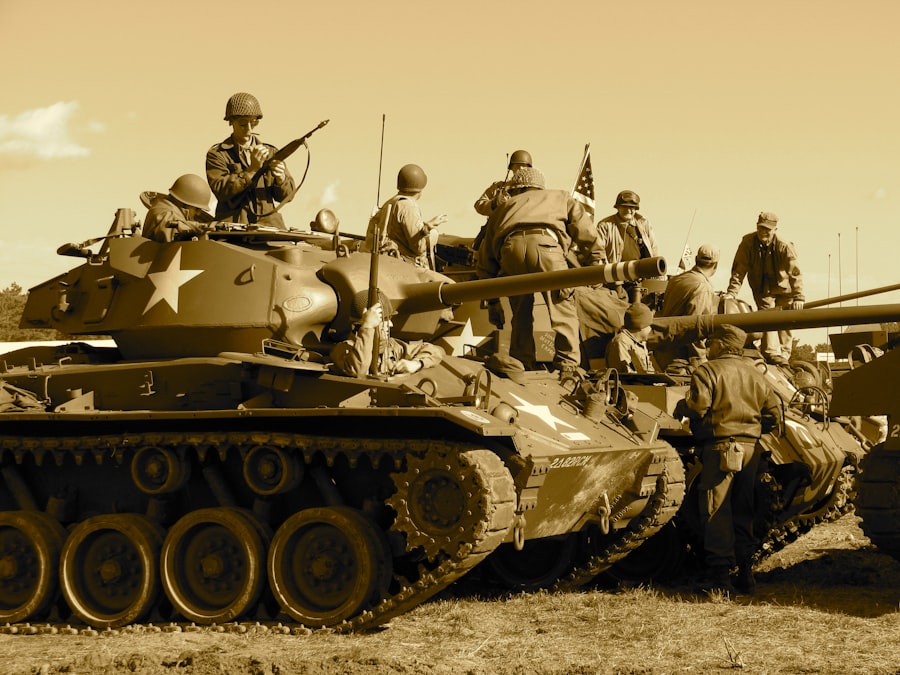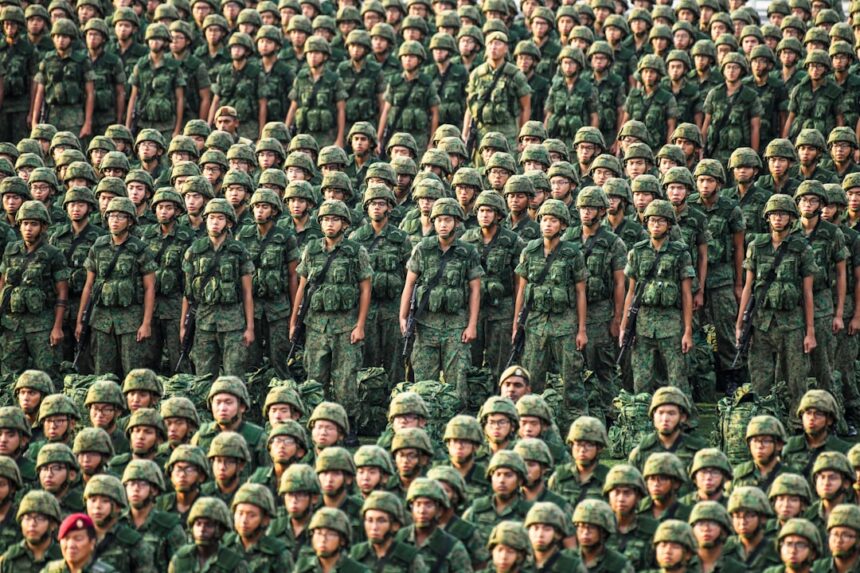In the contemporary landscape of global conflict, the emergence of private armies has become a significant phenomenon, particularly in resource wars. These conflicts, often driven by the quest for valuable natural resources such as oil, minerals, and timber, have seen the increasing involvement of private military companies (PMCs) that operate outside traditional state control. The motivations behind these wars are complex, intertwining economic interests with geopolitical strategies, and the role of private armies adds another layer of complexity to these already volatile situations.
As nations grapple with the implications of privatized warfare, understanding the dynamics of private armies in resource wars is crucial for comprehending modern conflict. Private armies are not merely mercenaries; they represent a shift in how warfare is conducted in the 21st century. With the privatization of military services, these companies often provide security, logistics, and combat support in regions where state forces are either absent or ineffective.
This trend raises critical questions about accountability, legality, and the ethical ramifications of employing private forces in conflicts primarily driven by resource extraction. As the world continues to witness the intersection of corporate interests and armed conflict, it becomes increasingly important to analyze the role and impact of these private armies in resource wars.
Key Takeaways
- Private armies play a significant role in securing and controlling valuable resources during conflicts.
- Historically, private armies have been used by various actors to influence resource extraction and territorial control.
- Their presence often leads to severe social and economic impacts on local communities caught in resource wars.
- Legal and ethical challenges arise from the use of private armies, including accountability and human rights concerns.
- International regulations and oversight are crucial to managing the influence and activities of private armies in resource conflicts.
Historical Context of Private Armies
The use of private armies is not a novel concept; it has deep historical roots that can be traced back to ancient civilizations. From the mercenaries of the Roman Empire to the privateers of the Age of Sail, individuals and groups have long been employed for military purposes outside the direct control of state entities. However, the modern incarnation of private armies began to take shape in the late 20th century, particularly following the end of the Cold War.
The dissolution of state-sponsored military structures and the rise of globalization created a fertile ground for private military companies to flourish. In the 1990s, conflicts in places like Sierra Leone and Angola highlighted the effectiveness and efficiency of PMCs in resource-rich environments. These companies provided essential services that local governments struggled to deliver, often stepping into power vacuums left by weakened states.
The historical context reveals that while private armies can offer immediate solutions to security challenges, their involvement often leads to long-term consequences that complicate peacebuilding efforts and exacerbate existing tensions.
The Role of Private Armies in Resource Extraction

Private armies play a pivotal role in securing resource extraction operations in conflict zones. Their presence is often justified by the need for enhanced security in areas where state forces are either corrupt or incapable of providing adequate protection. Companies engaged in mining, oil drilling, and logging frequently hire PMCs to safeguard their operations from insurgents, local militias, or rival corporations.
This relationship between resource extraction and private military services creates a cycle where security needs drive further militarization of resource-rich areas. Moreover, the involvement of private armies can lead to significant changes in local power dynamics. By providing security for multinational corporations, these companies often inadvertently empower local elites who may exploit their newfound influence for personal gain.
This can result in a situation where local communities are marginalized or subjected to violence as private armies enforce corporate interests. The implications of this dynamic extend beyond immediate security concerns; they can destabilize entire regions and perpetuate cycles of violence and exploitation.
Case Studies of Private Armies in Resource Wars
| Case Study | Region | Resource Involved | Private Army Name | Years Active | Estimated Personnel | Impact on Conflict |
|---|---|---|---|---|---|---|
| Angolan Civil War | Angola | Diamonds | Executive Outcomes | 1993-1997 | 500-1000 | Significantly shifted military balance, securing mining areas |
| Conflict in Sierra Leone | Sierra Leone | Diamonds | Executive Outcomes | 1995-1997 | 300-600 | Helped government regain control over diamond fields |
| Colombian Conflict | Colombia | Oil and Minerals | Private Security Contractors | 2000-Present | Thousands (various groups) | Protected resource extraction sites, involved in human rights controversies |
| DR Congo Conflict | Democratic Republic of Congo | Coltan, Gold | Mai-Mai Militias (private-like) | 1998-Present | Several thousand | Control over mining areas fuels ongoing conflict |
| Yemen Conflict | Yemen | Oil | Private Military Companies | 2015-Present | Hundreds | Secured oil infrastructure, influenced local power dynamics |
Examining specific case studies provides valuable insights into how private armies operate within resource wars. One notable example is the role of Executive Outcomes in Sierra Leone during the 1990s. Hired by the government to combat rebel forces threatening diamond mines, Executive Outcomes successfully regained control over key territories.
However, their methods were often brutal, leading to allegations of human rights abuses.
Another pertinent case is that of Blackwater (now known as Academi) in Iraq during the early 2000s.
Tasked with protecting U.S. diplomats and facilities, Blackwater’s operatives became embroiled in numerous controversies, including a notorious incident in Nisour Square where civilians were killed. The involvement of such companies in resource-rich regions raises questions about accountability and oversight, as their actions can have far-reaching consequences for both local populations and international relations.
The Impact of Private Armies on Local Communities
The presence of private armies in resource wars profoundly affects local communities, often leading to increased violence and social fragmentation. While these companies may provide temporary security for resource extraction operations, they frequently do so at the expense of local populations. Communities may find themselves caught between competing interests: on one side are the corporations seeking profit through resource extraction, and on the other are the private armies enforcing corporate will through intimidation or violence.
Furthermore, the economic benefits promised by resource extraction often fail to materialize for local communities. Instead of fostering development and improving living conditions, the influx of private armies can exacerbate existing inequalities and create new grievances. As local populations witness their resources being exploited without tangible benefits, resentment can grow, leading to further instability and conflict.
The cycle becomes self-perpetuating as communities resist external control over their resources, often resulting in violent confrontations with private military forces.
The Legal and Ethical Implications of Private Armies

The rise of private armies raises significant legal and ethical questions that challenge existing frameworks governing armed conflict. International law has struggled to keep pace with the privatization of military services, leading to ambiguities regarding accountability for actions taken by PMCs. While some argue that these companies operate under the same legal standards as state militaries, others contend that their profit-driven motives create a fundamental conflict with humanitarian principles.
Ethically, the use of private armies poses dilemmas regarding human rights and corporate responsibility. Instances of abuse and misconduct by PMCs have sparked outrage and calls for greater oversight. However, enforcing accountability remains challenging due to jurisdictional issues and the often opaque nature of PMC operations.
As societies grapple with these complexities, it becomes imperative to establish clearer legal frameworks that address the unique challenges posed by privatized military forces in resource wars.
The Relationship between Governments and Private Armies
The relationship between governments and private armies is multifaceted and often fraught with tension. On one hand, governments may rely on PMCs to fulfill security needs that they cannot adequately address due to limited resources or political constraints. This reliance can create a dependency on private forces that undermines state sovereignty and accountability.
Governments may find themselves outsourcing critical functions traditionally reserved for national militaries, raising concerns about who ultimately holds power in conflict situations. Conversely, this relationship can also lead to collusion between state actors and PMCs, where governments turn a blind eye to human rights abuses or illegal activities conducted by these companies in exchange for financial or political support. Such arrangements can perpetuate cycles of violence and exploitation while eroding public trust in governmental institutions.
As this dynamic evolves, it becomes essential for policymakers to navigate the complexities of these relationships carefully to ensure that state interests align with ethical considerations and respect for human rights.
The Rise of Mercenary Companies in Resource Wars
The rise of mercenary companies has been particularly pronounced in resource-rich regions experiencing conflict. These entities often capitalize on instability by offering their services to corporations seeking protection for their investments. The allure of quick profits attracts a range of actors into this space, from former military personnel to opportunistic entrepreneurs looking to exploit conflict for financial gain.
Mercenary companies have become increasingly sophisticated in their operations, employing advanced technology and tactics that mirror those used by national militaries. This evolution raises concerns about the potential for escalation in conflicts as these companies engage in combat operations that may exceed their original mandate of providing security. The proliferation of mercenary forces complicates efforts to achieve lasting peace in resource-rich areas, as their presence can prolong conflicts rather than contribute to resolution.
The Future of Private Armies in Resource Conflicts
Looking ahead, the future of private armies in resource conflicts appears uncertain yet likely to expand as global demand for resources continues to grow. As states grapple with budget constraints and shifting geopolitical landscapes, reliance on PMCs may become more prevalent. This trend could lead to an increase in unregulated military activities as companies seek new markets for their services.
However, there is also potential for reform and greater oversight as awareness grows regarding the implications of privatized warfare. International organizations and advocacy groups are increasingly calling for regulations that govern PMC operations and hold them accountable for their actions. The challenge will be balancing security needs with ethical considerations while ensuring that local communities are not further marginalized by corporate interests.
International Regulations and Oversight of Private Armies
The lack of comprehensive international regulations governing private armies presents a significant challenge for addressing their role in resource wars. While various treaties exist concerning mercenaries and armed conflict, enforcement mechanisms remain weak or non-existent. Efforts such as the Montreux Document aim to provide guidelines for states regarding PMCs’ responsibilities but lack binding authority.
To effectively regulate private armies operating in resource-rich areas, there must be a concerted effort among nations to establish clear legal frameworks that prioritize human rights and accountability. This includes creating mechanisms for monitoring PMC activities and ensuring that they adhere to international humanitarian law standards. Without robust oversight, the potential for abuse will persist, undermining efforts toward peacebuilding and sustainable development.
Addressing the Challenges of Private Armies in Resource Wars
The challenges posed by private armies in resource wars are complex and multifaceted, requiring urgent attention from policymakers, civil society, and international organizations alike. As these entities continue to play an increasingly prominent role in conflicts driven by resource extraction, it is essential to address issues related to accountability, legality, and ethical considerations surrounding their operations. Moving forward, fostering dialogue among stakeholders is crucial for developing effective strategies that balance security needs with respect for human rights and local communities’ interests.
By establishing clearer regulations and promoting transparency within PMC operations, it may be possible to mitigate some negative impacts associated with privatized warfare while ensuring that resource-rich regions can pursue paths toward sustainable development and lasting peace.
Private armies have increasingly become a significant factor in resource wars, often exacerbating conflicts over valuable commodities. For a deeper understanding of the implications of these private military contractors in modern warfare, you can read more in this insightful article on the topic at inthewarroom.
com/’>In the War Room. This resource delves into the complexities of how private armies operate and their impact on global resource distribution and conflict dynamics.
WATCH THIS! The Secret War for Africa’s Gold: How Private Armies Fund Global Conflict
FAQs
What are private armies?
Private armies are armed groups that are not officially part of a country’s national military or police forces. They are often funded and controlled by private individuals, corporations, or non-state actors.
How do private armies differ from national military forces?
Unlike national military forces, private armies operate independently of government control and may serve the interests of private entities rather than the state. They often lack formal accountability and oversight.
What role do private armies play in resource wars?
Private armies are frequently employed to secure, control, or exploit valuable natural resources such as minerals, oil, or timber. They may engage in violent conflicts to protect resource-rich areas or to challenge rival groups.
Why are resource wars significant?
Resource wars are conflicts driven by competition over natural resources. They can lead to prolonged violence, destabilization of regions, and significant humanitarian crises, especially in resource-rich but politically unstable areas.
Which regions are most affected by private armies and resource wars?
Regions such as parts of Africa, Latin America, and Southeast Asia have experienced significant issues with private armies and resource-related conflicts, often linked to valuable resources like diamonds, gold, oil, and timber.
Are private armies legal?
The legality of private armies varies by country. Many nations prohibit unauthorized armed groups, but enforcement can be weak. Some private military companies operate legally under contracts, while others function illegally.
What are the consequences of the involvement of private armies in resource wars?
The involvement of private armies can exacerbate violence, undermine state authority, contribute to human rights abuses, and prolong conflicts. They can also complicate peace efforts and governance in affected regions.
How do governments and international organizations respond to private armies?
Governments and international bodies may attempt to regulate or disband private armies through legislation, sanctions, peacekeeping missions, and diplomatic efforts. However, challenges remain due to the clandestine nature of these groups.
Can private armies be hired legally for security purposes?
Yes, private military and security companies can be legally contracted to provide security services, but they are typically subject to national and international laws and regulations to prevent abuses.
What measures can help reduce conflicts involving private armies and resource wars?
Measures include strengthening governance and rule of law, promoting transparency in resource management, enforcing international laws, supporting conflict resolution initiatives, and addressing the root causes of resource competition.




